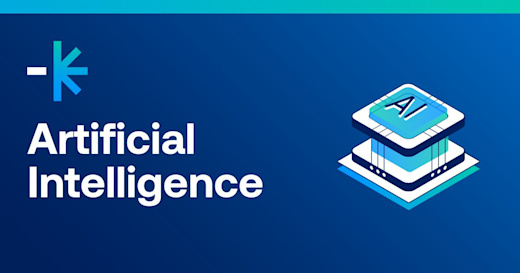Organisations’ reliance on cloud computing (regardless of their size) is growing at a rapid pace. In turn, this is driving an increase in the demand for the skills needed to deploy and manage cloud services, resulting in the emergence of a skills gap.
The widening cloud skills gap is a serious concern across businesses today.
Sixty percent of respondents to OpRamp’s cloud skills survey said the majority of their mission-critical IT services were either built or run using cloud services.
With such a heavy reliance on the cloud, it is essential that employees gain the necessary skills to manage cloud services effectively. IT professionals can achieve this, and demonstrate their competence in these skills, by undergoing training and certification from major cloud vendors. The largest cloud vendors in Australia are Amazon Web Services (AWS), Microsoft Azure and Google Cloud.
AWS is the most widely deployed cloud platform in the world. It has a wide range of services, across computing, storage, database, analytics, networking, mobile, developer tools, management tools, IoT, security and enterprise applications.
Similarly, Microsoft Azure is one of the leading public cloud services used by Australian organisations. In addition to the essential requirements of IT — processing and storage — Microsoft has also developed Microsoft 365, which incorporates cloud-based applications of Microsoft Office along with OneDrive, Teams and SharePoint, and Microsoft Dynamics 365.
Google Cloud Platform (GCP) is another key player in the Australian cloud market. Offering a set of cloud services including computing, data storage, data analytics and machine learning, it runs on the same infrastructure that Google uses internally for its end-user products such as Google Search engine, YouTube, and more.
Many organisations choose to use multiple cloud vendors, depending on their specific requirements and needs.
Benefits of getting certified for individuals
As IDC reports, cloud skills are accelerating the careers of IT Professionals. In particular, IT professionals with cloud skills had significantly more influence over the type of cloud infrastructure deployed by their organisations, and the pace of cloud adoption, when compared to their colleagues without cloud certifications.
Specifically, IT professionals with more than three relevant certifications had 5.5 times more influence during the initial deployment of cloud services than IT professionals without cloud-related certifications. IT professionals with even one cloud certification were 35 percent more influential during cloud deployments than their counterparts were during deployments of other technologies.
This research points to one major benefit of certification – increased employability, which can lead to greater job satisfaction, heightened confidence and higher salaries in turn.
Gaining certification in the cloud technology such as Microsoft Azure or AWS not only equips individuals with skills that are in high demand in Australia, but equally important, it can give prospective employer confidence that the candidate has the skills they need. Furthermore, gaining certification demonstrates to an employer an individual’s commitment to their profession and can lead to a more rewarding and satisfying role, and new opportunities for advancement in the future.
In all regions across the world, certification pays off financially for individuals. According to the Global Knowledge 2018 IT Skills and Salary report, in North America, the average salary difference between certified and non-certified IT staff is $15,913, or 22%. The percentage increase is even more noticeable in the Asia-Pacific region, as certified professionals earn 45% more than non-certified peers.
Benefits of getting certified for organisations
While there are clear benefits for IT professionals to obtain certification, there are also benefits for organisations hiring certified IT staff.
According to the IDC, comprehensively trained organisations are 80 percent faster at adopting cloud and are 1.9 times more likely to move beyond limited deployment to more complete deployment. Furthermore, comprehensively trained organisations are 3.8 times more likely to meet their cloud ROI requirements and are 4.4 times more likely to overcome operational/performance concerns with their cloud service.
Therefore, by employing certified staff, an organisation can ensure they are maximising their current and future investment in the cloud, which can be a significant cost. Additionally, with certified staff, organisations are more likely to be able to address any operational issues and return to work quickly, thereby increasing efficiency and minimising losses.
The profound impact that certification can have on an individual’s career prospects, as well as their organisation’s ability to operate cloud services effectively and efficiently, makes a very strong case for certification from both a business and consumer standpoint.
With the cloud skills gap only set to widen in the coming years, AWS, Microsoft, Google and other cloud vendors have introduced a wide range of certifications and are encouraging IT professionals to become certified in their respective cloud services.
Where do you get certified?
Training for certification in AWS, Microsoft, Google and other cloud services is available through a network of partner organisations worldwide. These official partners, including DDLS, provide formal classroom training including a mix of presentations, hands-on labs, and group discussions led by experts in their fields. Official partner organisations are the only organisations authorised to provide this training on behalf of cloud vendors.
Whilst some certifications can be delivered online, classroom training is the preferred method of gaining certification, due to the variety of learning methods and expertise of instructors (as well as increased engagement and less dropout). Classroom instructors can provide local knowledge of the market, culture, and employment environment, for example, that is not available from online courses.
For anyone in search of cloud certification and unsure of whether to self-learn or undertake formal training, AWS offers a handy online questionnaire to help with this decision.
For more information on how to get certified in cloud technologies, please visit https://www.lumifywork.com/en-au/courses/.
References: https://cloud.mytechmag.com/compelling-arguments-for-cloud-service-certification-1277.html






